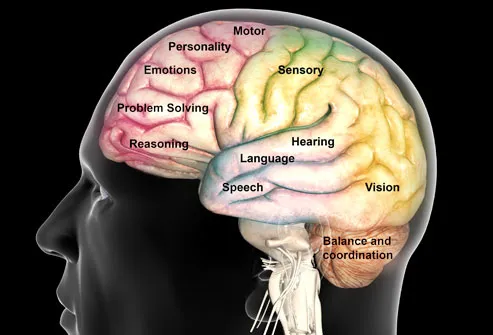Administrator
Myths and Facts About Depression
Myth: Hard Work Beats Depression
Depression affects nearly one in six people at some point in their lives, so folk remedies and half-truths about this common illness abound. One such idea: throw yourself into work and you'll feel better. For a mild case of the blues, this may indeed help, but depression is a different animal. Overworking can actually be a sign of clinical depression, especially in men.
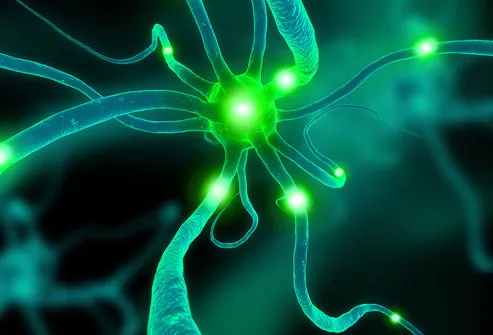
Myth: It's Not a Real Illness
Depression is a serious medical condition -- and the top cause of disability in American adults. But it's still confused with ordinary sadness. Biological evidence of the illness can be seen in brain scans, which show abnormal activity levels. Key brain chemicals that carry signals between nerves (shown here) also appear to be out of balance in depressed people.

Fact: Men Fly Under the Radar
A depressed man, his loved ones, and even his doctor may not recognize depression. That's because men are less likely than women to talk about their feelings -- and some depressed men don't appear sad or down. Instead, men may be irritable, angry, or restless. They may even lash out at others. Some men try to cope with depression through reckless behavior, drinking, or drugs.
Myth: Depression Is Just Self-Pity
Our culture admires will power and mental toughness and is quick to label anyone who falls back as a whiner. But people who have clinical depression are not lazy or simply feeling sorry for themselves. Nor can they "will" depression to go away. Depression is a medical illness -- a health problem related to changes in the brain. Like other illnesses, it usually improves with appropriate treatment.

Fact: Anyone Can Get Depressed
Poet or linebacker, shy or outgoing, anyone from any ethnic background can develop depression. The illness is twice as common in women as in men, but it may be that women are more likely to seek help. It's often first noticed in the late teens or 20s, but an episode can develop at any age. Tough personal experiences can trigger depression, or it may develop out of the blue.

Fact: It Can Sneak Up Slowly
Depression can creep up gradually, which makes it harder to identify than a sudden illness. A bad day turns into a rut and you start skipping work, school, or social occasions. One type, called dysthymia, can last for years as a chronic, low-level illness – a malaise that silently undermines your career and relationships. Or depression can become a severe, disabling condition. With treatment, many feel substantial relief in 4-6 weeks.

Myth: Help Means Drugs for Life
Despite the buzz about a "Prozac Nation," medication is only one of the tools used to lift depression. And asking for help does not mean you'll be pressured to take prescription drugs. In fact, studies suggest that "talk" therapy works as well as drugs for mild to moderate depression. Even if you do use antidepressants, it probably won’t be for life. Your doctor will help you determine the right time to stop your medication.
Myth: Depressed People Cry a Lot
Not always. Some people don't cry or even act terribly sad when they're depressed. Instead they are emotionally "blank" and may feel worthless or useless. Even without dramatic symptoms, untreated depression prevents people from living life to its fullest -- and takes a toll on families.

Fact: Family History Is Not Destiny
If depression appears in your family tree, you're more likely to get it too. But chances are you won't. People with a family history can watch for early symptoms of depression and take positive action promptly -- whether that means reducing stress, getting more exercise, counseling, or other professional treatment.

Myth: Depression Is Part of Aging
Most people navigate the challenges of aging without becoming depressed. But when it does occur, it may be overlooked. Older people may hide their sadness or have different, vague symptoms: food just doesn't taste good anymore, aches and pains worsen, or sleep patterns change. Medical problems can trigger depression in seniors -- and depression can slow recovery from a heart attack or surgery.
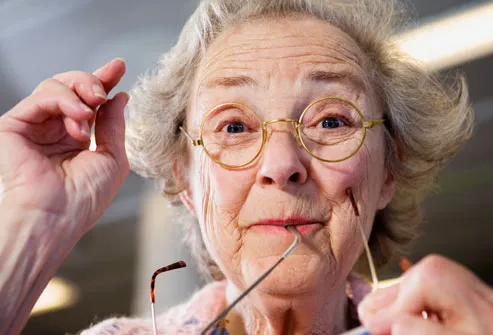
Fact: Depression Imitates Dementia
In seniors, depression can be the root cause of memory problems, confusion, and in some cases, delusions. Caregivers and doctors may mistake these problems for signs of dementia, or an age-related decline in memory. Getting treatment lifts the cloud for the majority of older people with depression. Psychotherapy is particularly useful for people who can't or don't want to take medication.

Myth: Talking Makes Things Worse
People were once advised not to "dwell on" problems by talking about them. Today, there's evidence that guided discussions with a professional can make things much better. Different types of psychotherapy help treat depression by addressing negative thought patterns, unconscious feelings, or relationship troubles. The first step is to talk to a mental health professional.

Fact: Positive Thinking May Help
The old advice to "accentuate the positive" has advanced into a practice that can ease depression. It’s called cognitive behavioral therapy (CBT). People learn new ways of thinking and behaving. Negative "self-talk" and behavior is identified and replaced with more upbeat thoughts and a more positive mood. Used alone or with medication, CBT works for many people.

Myth: Teens Are Unhappy by Nature
Although many teens are moody, argumentative, and intrigued by "the dark side," prolongued sadness or irritability is not normal for teens. When unhappiness lasts more than two weeks, it may be a sign of depression -- which develops in about one in 11 teens. Other signs a teen may need help include: being constantly sad or irritable even with friends, taking no pleasure in favorite activities, or a sudden drop in grades.

Fact: Exercise Is Good Medicine
Very good studies now show that regular, moderately intense exercise can improve symptoms of depression and work as well as some medicines for people with mild to moderate depression. Exercising with a group or a good friend adds social support, another mood booster.

Myth: Depression Is Tough to Treat
The reality is most people who take action to lift their depression do get better. In a large study by the National Institute of Mental Health, 70% of people became symptom-free through medications -- though not always with the first medicine. Studies show the best treatment is combining medication and talk therapy.

Fact: It's Not Always Depression
Some life events cause sadness or disappointment, but do not become clinical depression. Grief is normal after a death, divorce, loss of a job, or diagnosis with a serious health problem. One clue of a need for treatment: the sadness is constant every day, most of the day. When people are weathering difficult times appropriately, they can usually be distracted or cheered up for short periods of time.

Fact: Hope for Better Days Is Real
In the depths of depression, people may think there's no hope for a better life. This hopelessness is part of the illness, not a reality. With treatment, positive thinking gradually replaces negative thoughts. Sleep and appetite improve as the depressed mood lifts. And people who've seen a counselor for talk therapy are equipped with better coping skills to deal with the stresses in life that can get you down.
taken from webMD
A New Ambassador

Those at AFOM are delighted to have Mark Rogers come on board as an Ambassador.
Enlisted in the Australian Army in May 2005. On finishing his basic training at Kapooka and Singleton School of Infantry, Mark was posted to Delta Company 6 RAR at Enoggera.
In September 2006 he was deployed to Timor Leste with Delta Company 6 RAR.
Mark was then again deployed with 6 RAR Delta Coy to Iraq on Operation Catalyst from November 2007 to June 2008.
January 2010 Mark was posted to Training support Team. Mark was Section Second-in-Command of the Rehabilitation Section within Training Platoon, a role of significant responsibility involving the management of soldiers with various injuries and levels of experience. On the 26th January 2011 Mark was awarded the Australia Day Medallion Military Division. In appreciation for the exemplary service within Training Support Platoon, Rifleman Wing, School of Infantry. PTE Rogers was required to perform the role of Section Second-in-Command of the Rehabilitation Section within Training Platoon, a role of significant responsibility involving the management of soldiers with various injuries and levels of experience. This ensured that soldiers were able to quickly rehabilitate and post into their respective Battalions earlier than expected.
In 2013 Mark was posted to 7 RAR in Adelaide and again was deployed overseas to Oruzgun Province in Afghanistan. Marks role with his unit was as the Combat First aider. October 2014 Mark Was awarded a Bronze Citation for “ saving the life of five Afghan Nationals in extreme weather conditions after an IED explosion, one of the wounded being Governor of Gizad".
Today Mark has retired from Full Time Service but is still active within the Caboolture Reserve Unit. He is currently Studying at the Sunshine coast University in Paramedic Science and is also active in the Caboolture wood Workers Club.
Mark is passionate about Military Personnel and their families
Newsletter No 4 2016

It continues to be an extremely busy time for AFOM and their Directors and friends. Below are just a few exciting people and events that have occurred recently.
We have a new Ambassador and also a new “Friend” who will assist us with multiple issues along the way.
Firstly our new Ambassador:
MARK ROGERS
Sutherland Shire Invisible Wounds
AFOM Caring for ALL in our Community
When: Tuesday 8th November 2016
CLUB ON EAST
(was known as Suth.United Serv.Club)
7 East Parade, Sutherland
Entry - $5
Commencing: 9:30am for a meet and mingle and Closes at 3:30-4pm
Invisible Wounds: Effects on the community
Do you know of anyone having problems
with Depression, Anxiety, Posttraumatic Stress or other mental health problems?
Have you, or they encountered trauma, difficult working conditions or financial problems due to economic or other reasons? Find out how our Community can help. Let us know what you think our Community should be doing. Come to our “Invisible Wounds Day” and see what services and help are available. Find some clues how to live and help people who have mental health problems.
For more information contact: June Roe 0407106718 E:This email address is being protected from spambots. You need JavaScript enabled to view it.

Black and White Gatsby Night

Tickets online sale at:
http://www.afom.org.au/shop-auctions/shop
For further information , hard copy tickets or dietary information: contact Belinda : 0438577518 or email Gail This email address is being protected from spambots. You need JavaScript enabled to view it. or Belinda on This email address is being protected from spambots. You need JavaScript enabled to view it.
Next step for treatment-resistant depression
When Depression Resists Treatment
It's hard not to feel hopeless when depression treatment doesn't work. But don't give up. As many as two-thirds of people with depression aren't helped by the first antidepressant they try. Work with your doctor to find the best treatments. Depression is highly treatable, and there are many options available. You might find that changing your medication, combining drugs, seeing a specialist, or talking to a therapist helps your recovery and reduces relapses.

Talk Therapy for Focus and Insight
Talking with a mental health professional can help you set goals, tackle problems, and stay focused on medical treatment for your depression. Talk therapy is an important part of treatment for many people with chronic and treatment-resistant depression (TRD). Ask your doctor to help you find a therapist whom you can work with effectively. Talk therapy includes individual psychotherapy and support groups.
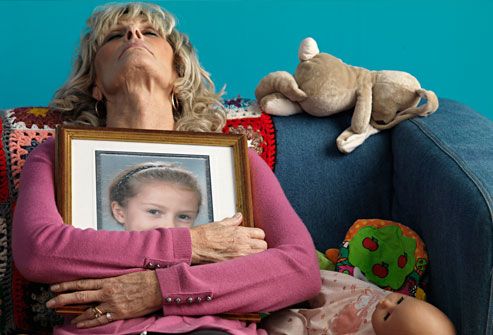
Therapy That Can Help
Some people may benefit from specific types of therapy. Cognitive-behavioral therapy (CBT) attempts to break down ineffective or destructive patterns of thinking that may contribute to depression. Problem-solving therapy, a type of CBT, may help people with depression cope with negative or stressful life experiences. Interpersonal psychotherapy examines issues like grief, which may affect the relationships between people or cause depression.

Find the Right Medications
Many people who start taking an antidepressant don’t have a complete recovery and may need a change in treatment. You should see some improvement after six weeks. If your antidepressant isn't working, your doctor may change your prescription or increase your dosage, or prescribe other antidepressants or even other types of drugs to go with it. Continue to take it as prescribed, even if you start to feel better.
Which Antidepressant Is Right?
The most commonly prescribed antidepressants, known as SSRIs and SNRIs, affect the brain chemicals serotonin or both serotonin and norepinephrine, respectively. Your doctor considers side effects, safety, tolerability, and your history of depression when prescribing antidepressants. You may experience mild to severe side effects like dry mouth, nausea, insomnia, sexual problems, changes in blood pressure, or suicidal thoughts from antidepressants. Sometimes side effects go away. If severe side effects persist, talk to your doctor about changing medicines.
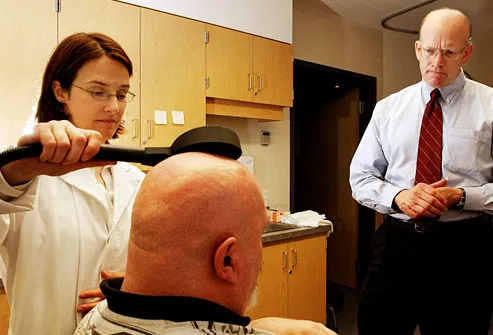
Other Treatments for Depression
If several courses of different antidepressants have failed, you and your doctor might consider other medical treatments that can help treatment-resistant depression. Electroconvulsive therapy uses small electric currents to cause a brief seizure in the brain. A series of treatments over several weeks can help ease symptoms of severe depression. In vagus nerve stimulation, a small pacemaker-like device is surgically implanted under the collarbone that sends electrical signals to the brain through a large nerve that runs up through the neck. Transcranial magnetic stimulation (shown) sends magnetic pulses to the brain to improve mood.

Pastoral and Spiritual Counseling
Make sure you have enough support from family and friends so you can cope with your depression. Many people find comfort from being part of a spiritual community. If you are religious, talk with your priest, rabbi, minister, or other religious advisor. These people often know you and your family as individuals. And they can help you articulate the things that are important to you. They'll also help you understand your role in the community.

Volunteer for a Sense of Worth
Depression feeds on isolation. When you separate yourself from the community, your sense of having no value grows stronger. Volunteering is a perfect antidote. It gives you something to do and turns your focus outside yourself. At the same time, it makes you feel good about who you are. Find something you value. Then offer to help.
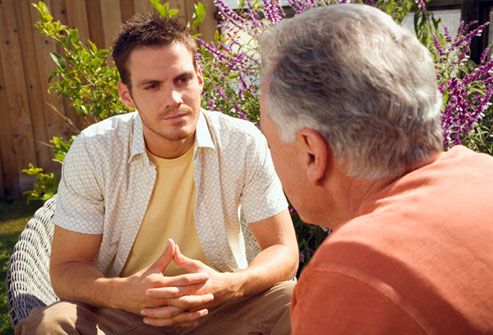
Let Your Family Help
Depression is hard on you and your family. But remember, they can't help if you won't let them. If you share your feelings, you won't create a divide between you and those you love. Let them help when they can, and consider couples or family counseling. Let your family know they are important in your life.

Plan to Feel Better
You don't always do things that make you happy. But planning enjoyable activities for each day can help your treatment. Each afternoon, jot down a list of what you want to do for yourself the next day. Then add what you need to do for others. Review your plan at the end of each day. How did the things you accomplished make you feel?

Exercise, a Natural Medicine
You may not feel like exercising. But exercise is effective in easing depression. Your body's physical response to exercise actually improves your mood. That's because exercise causes the release of endorphins. These chemicals trigger a positive feeling. It doesn't matter what kind of exercise you do. Just find something you enjoy and start moving.

Support From Others Who Understand
A support group is made up of people who know what it feels like to be depressed. It helps to know others understand how you feel. Even more important, they can share coping techniques from their own experience. Plus you have the opportunity to share your successes with them. Ask your doctor to help you find a support group in your area.
taken from webMD
Top 12 Rewards of Exercise

Better Mood
Cranky? Get moving.
Exercise makes you feel happier. When you work out, your body makes endorphins -- "feel-good" chemicals in the brain. You can actually start to feel better within a few minutes of moving. But the effects of regular exercise can last for a long time.

More Energy
You might not expect it, but using energy to exercise gives you more get-up-and-go. Sometimes when you're tired, the last thing you want to do is move. But when you exercise regularly, that fatigue goes away and you find yourself with a lot more pep.

Good Night's Sleep
Get regular exercise
to help you fall asleep faster and sleep more soundly. The harder you exercise, the more likely you are to have a good night's sleep. It doesn't matter when you exercise, as long as you don’t have trouble sleeping. If you do have problems, though, work out earlier in the day.

More Confidence
You just walked a mile or ran your first 5K. Success like that can boost your self-esteem and make you ready to conquer anything. Exercise makes you feel good about yourself.

Less Stress
Exercise calms your body and your brain. After your body works hard, the levels of stress hormones -- like adrenaline and cortisol -- drop. Stress and anxiety fade away, especially after aerobic exercise.

More Productive
Want to be more efficient at work? Take a break and get some exercise. In one study, people who got moving in the middle of the day were much more productive when they went back to work. They also were happier and got along better with their co-workers.

Weight Control
Exercise and diet work together to keep your weight healthy. Whether you want to lose some inches around the waist or just avoid putting on extra pounds, exercise is the key. Try to work out 30 minutes most days of the week.

Long Life
Regular exercise can add years to your life. And that counts even if you're not a hard-core fitness buff. Just get moving. Even a little exercise can help you live longer than not exercising at all. The American Heart Association says each hour of exercise adds 2 hours to your life.

Strong Bones and Muscles
Your bones and muscles get stronger when you work out. It's especially important to do weight-bearing exercise, such as weight-lifting, tennis, walking, and dancing. This can help build bones as you get older. And it can help ward off osteoporosis and protect your balance and coordination.
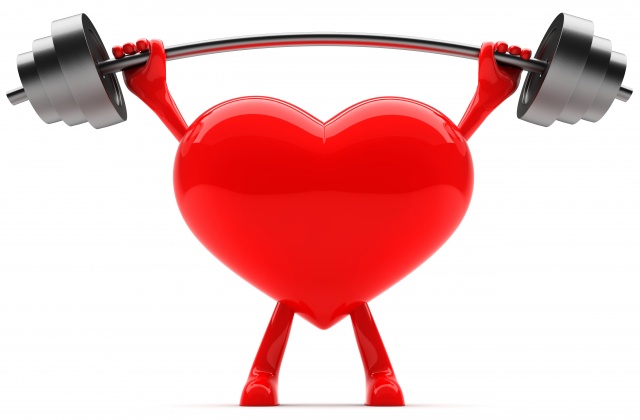
Healthy Heart
It's no secret that exercise is great for your heart. Regular workouts lower your risk of heart disease, improve your blood cholesterol levels, and help control and even prevent high blood pressure.

Lower Risk of Cancer
Regular exercise can cut your risk of some cancers, including colon, breast, and lung. And people who have cancer have better quality of life when they exercise.
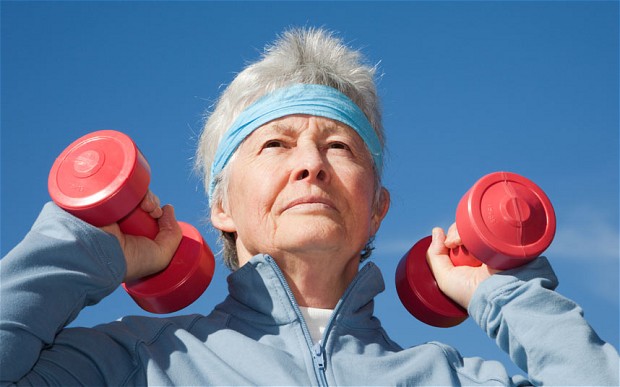
Less Arthritis Pain
If you have arthritis, regular exercise can help ease your pain. And it can make your daily activities easier. Try non-impact exercises like swimming. They can be easier on sore joints.
Taken from WebMD
Ruth Rogers

Ruth comes from a long line of Military family.
Her Father served in the Malaysian Emergency, PNG from 1966 to 1972, and a Maralinga Veteran. Married to a retired Infantry soldier and has a son who served for 10 years completing 3 tours Timor, Iraq and Afghanistan. Ruth has 2 other children Karen and James and has 6 Grandchildren.
8 ways to ensure a lousy night's sleep
Drink Coffee After Dinner
It’s the caffeine. But you knew that when you ordered it, didn’t you? It was perfectwith that apple pie -- but at 3 a.m., when you’re still awake? Not so much. Caffeine lurks in lots of places: tea, chocolate, soft drinks, and energy drinks.

Have a Nightcap
It’s called “nightcap” for a reason: It’s the perfect way to end the evening, right? Wrong. Alcohol delays and limits deep sleep, which is important for restfulness, memory, and other things your brain does. It can make you drowsy enough to fall asleep, but it often wakes you up just a few hours later.

Surf the Web
Any artificial light at night can be bad for sleep, but the “blue light” smartphones and computers glow with is particularly bad -- televisions, too. Shut down bright screens 2 to 3 hours before bedtime to get your body ready for snoozing.

Take a Nap
It's a great way to catch up on a little shut-eye. But if you take one after 3 p.m., you can wreck your nighttime sleep. So, no naps and no coffee. A splash of cold water on your face or a brisk walk can get you moving again.
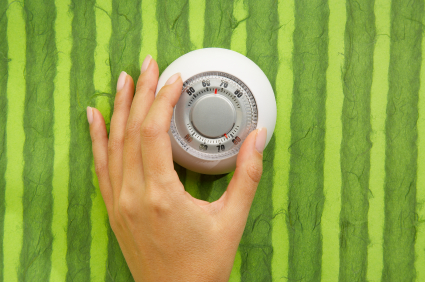
Turn up the Heat
You’ve probably noticed it’s harder to fall asleep when it’s hot. But did you know it can hurt the quality of your Zzz's, too? High humidity can make it even worse. Like so many other good things in life, if you want to get good rest, you gotta stay cool.

Eat Before Bed
A little bit is probably fine. But a big meal or snack can super-charge your metabolism and speed up your brain, which can lead to indigestion and even nightmares. But it doesn’t affect everyone the same way. If you’re a midnight snacker, keep a diary of what happens when you eat late to see if it bothers you.

Take Medication
If you’re supposed to take meds before bed, you should. But some prescription drugs can keep you from getting quality sleep, and certain over-the-counter medications are loaded with stimulants. Check with your doctor about what you’re taking and when before you change or stop any medication.
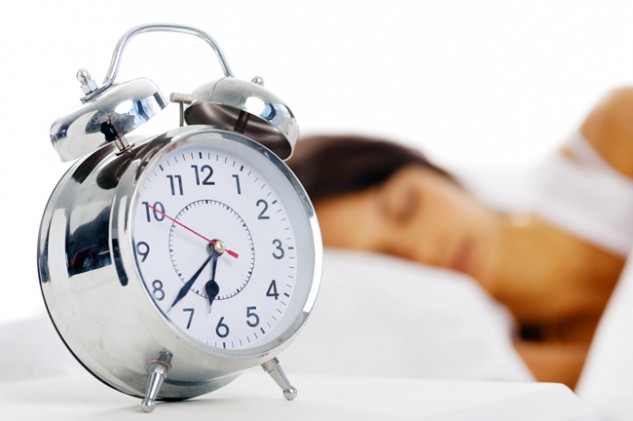
Sleep In
It may seem like a good way to catch up on rest, but it can mess with your sleep patterns. Keep regular hours, and you’ll probably snooze better and for longer stretches. Another good idea: Go for a run earlier in the day. Exercise can be a simple, healthy way to improve your shut-eye.
Taken from webMD
A Visual Guide to Generalized Anxiety Disorder
What’s Normal?
It's natural to worry during stressful times. But some people feel tense and anxious day after day, even with little to worry about. When this lasts for 6 months or longer, it may be generalized anxiety disorder. Many people don't know they have it. So they may miss out on treatments that lead to a better, happier life.

What It Feels Like
The main symptom is a constant and exaggerated sense of tension and anxiety. You may not be able to pinpoint a reason why you feel tense. Or you may worry too much about ordinary things, such as bills, relationships, or your health. It can upset your sleep and cloud your thinking. You may also feel irritable due to poor sleep or the anxiety itself.

Physical Symptoms
Body problems usually come along with the worry. They can include:
- Muscle tension or pain
- Headaches
- Nausea or diarrhea
- Trembling or twitching
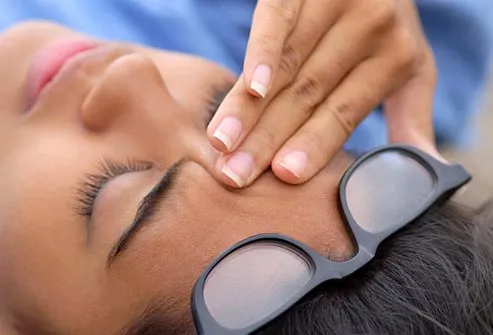
When It Won’t Stop
Your troubles will naturally concern you. What sets generalized anxiety disorder apart is the feeling that you can't stop worrying. You may find it very hard to relax, even when you do something you enjoy. Severe cases can hamper work, relationships, and daily activities.
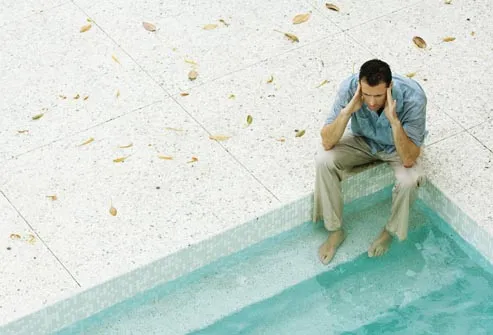
Who Gets It?
People of any age can develop generalized anxiety disorder, even children. It tends to appear gradually, with the first symptoms most likely to happen between childhood and middle age. Twice as many women as men say they have it.
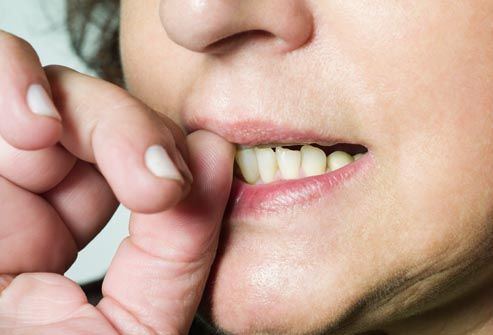
What Are the Causes?
The genes passed down through a family may put some people at a higher risk for anxiety, but that's not the whole picture. Your background and experiences also matter. Brain chemicals called neurotransmitters, as well as a pair of structures inside the brain called the amygdalae, seem to be involved.
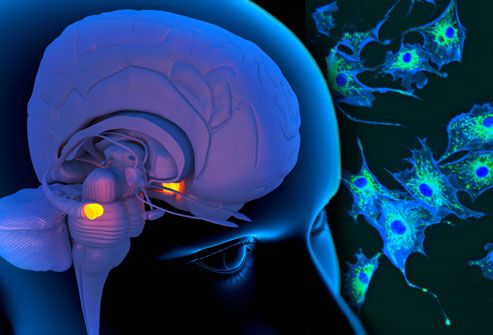
How It’s Diagnosed
There's no lab test, so the diagnosis is based on your description of your symptoms. Your doctor may ask, What do you worry about? How often? Does your anxiety interfere with any activities? It may be generalized anxiety disorder if you have felt anxious or worried too much for at least 6 months.
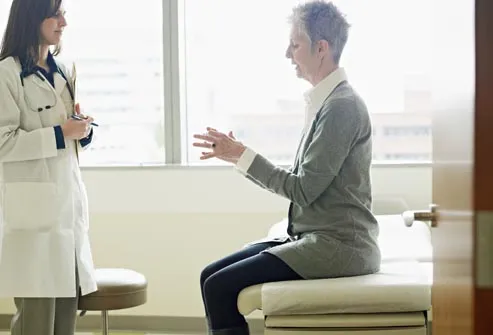
How Psychotherapy Helps
One kind of talk therapy is very effective in treating anxiety. It's called cognitive behavioral therapy. A counselor helps you identify your negative thoughts and actions. You may do homework, such as writing down the thoughts that lead to excess worry. You will also learn how to calm yourself.
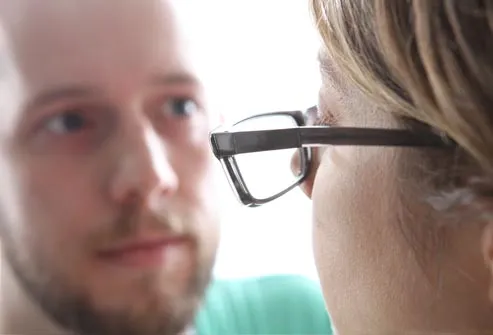
Anti-Anxiety Medicine
Medicines may be part of your treatment plan. Some newer antidepressant drugs work well to lower anxiety. It may take about 4 weeks to feel better. Your doctor might prescribe a benzodiazepine during this time or for a short while. Some of these drugs carry a risk of dependence. Sometimes, older types of antidepressants can treat generalized anxiety disorder if your symptoms include depression or panic. Talk with your doctor about pros and cons.

Taking Care of Yourself
A few simple changes can help. Avoid caffeine, illegal drugs, and even some cold medicines, which can boost anxiety symptoms. Try to get enough rest and eat healthy foods. Use relaxation techniques, such as meditation. Also, exercise! Research shows that moderate physical activity (like a brisk walk) can be calming.

Herbal Remedies: Caution
If you are thinking about trying a supplement, talk to your doctor first to find out if it’s safe. Kava, for instance, has been reported to cause liver damage. St. John’s wort can affect other medicines, including antidepressants and birth control pills.

When It’s More Than Anxiety
People who have generalized anxiety disorder may also develop depression, alcoholism, or drug addiction. It's also common for people with GAD to have another anxiety disorder. These can include panic disorder, posttraumatic stress disorder, obsessive-compulsive disorder, and social phobia.

Panic Disorder
People with panic disorder have sudden attacks of terror. Symptoms can include a pounding heart, sweating, dizziness, nausea, or chest pain. You may think you're having a heart attack, dying, or losing your mind. It's one of the most treatable of all anxiety disorders.
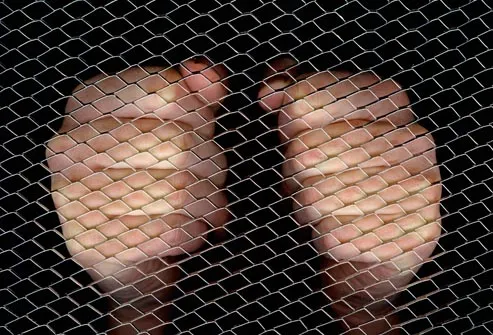
Posttraumatic Stress Disorder
Some people develop posttraumatic stress disorder (PTSD) after living through a terrifying event. The symptoms include vivid flashbacks and a loss of interest in activities that were once enjoyable. People may also have trouble being affectionate. They may feel irritable or even become violent. Treatments include medicine and counseling.

Obsessive-Compulsive Disorder
People with obsessive-compulsive disorder (OCD) have troubling thoughts they can't control. They may feel that they need to repeat rituals, such as washing their hands or checking that the door is locked. They may get dressed in a certain order or count objects for no good reason. It’s often treated with medication and psychotherapy.
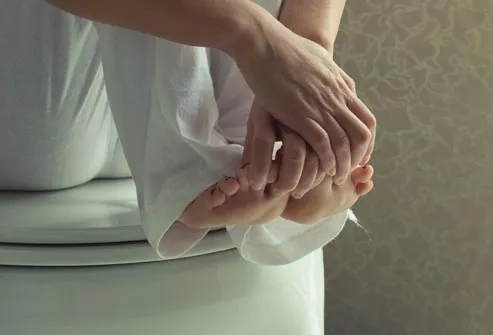
Social Anxiety Disorder
People with social phobia feel panicky and self-conscious in ordinary social situations. Symptoms include a sense of dread before social events and sweating, blushing, nausea, or trouble talking during the events. In severe cases, they may avoid school or work. It can be treated with psychotherapy and medicine.

Other Phobias
A phobia is an intense fear of something that is not likely to cause you any harm. Common ones include heights, closed-in spaces like elevators, dogs, flying, and water. Many people don't seek help because it’s easy to avoid whatever they fear. But phobias can be treated.

Where to Get Help
Start by talking with your family doctor. If an anxiety disorder seems likely, he will probably refer you to a mental health specialist who is trained in psychotherapy. It's important to choose someone you're comfortable talking to.
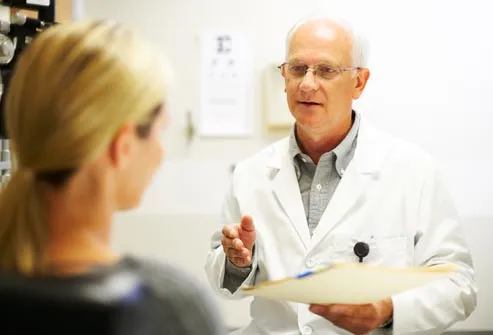
Taken from WebMD







